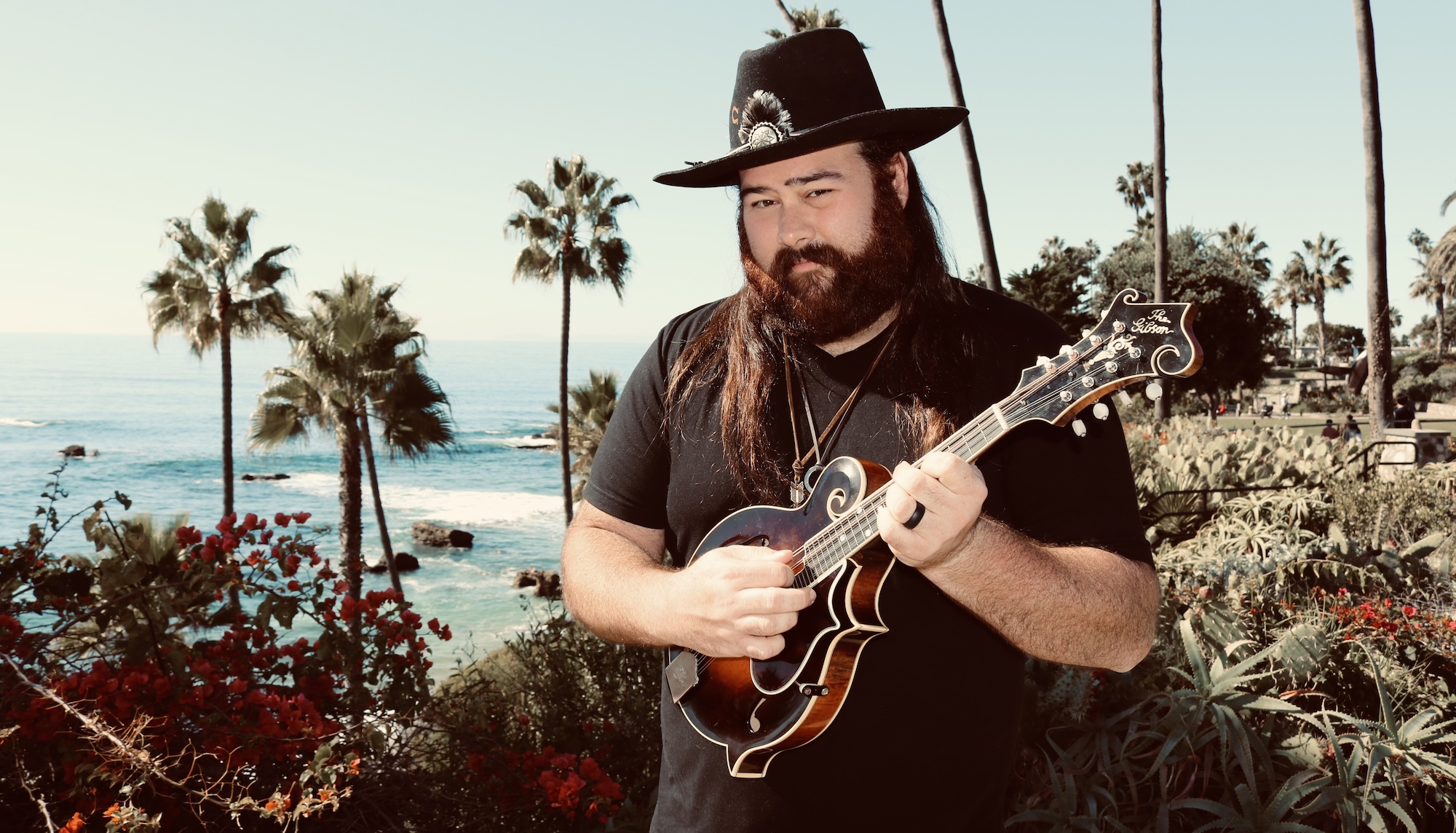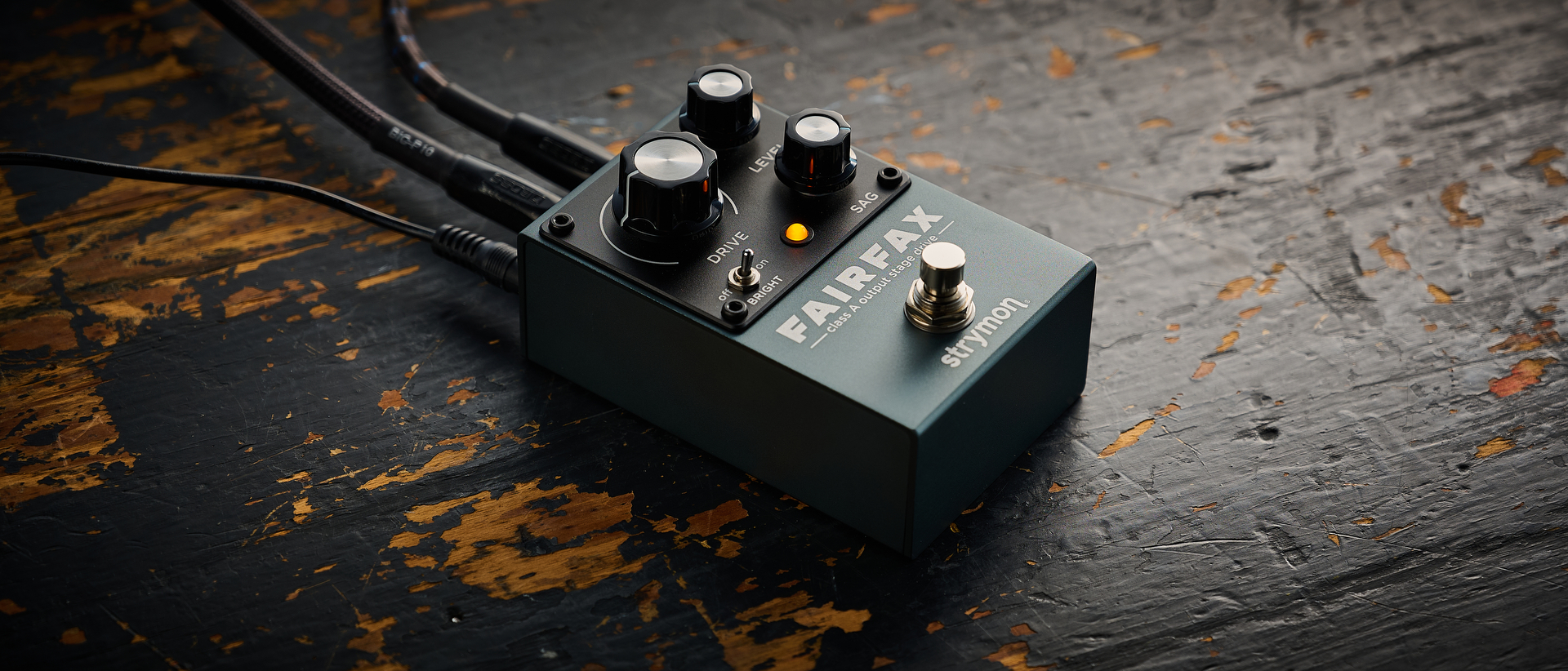Norman’s Rare Guitars’ Jack Ryan Sullivan talks jamming bluegrass with Coldplay’s Chris Martin, selling guitars to Jack Black, and his favorite instrument in the store
Co-managing one of the world's most famous guitar stores, Sullivan has traded licks with – and even picked up tips from – some of the best in the business

All the latest guitar news, interviews, lessons, reviews, deals and more, direct to your inbox!
You are now subscribed
Your newsletter sign-up was successful
Jack Ryan Sullivan is the bluegrass-shredding co-manager of Norman’s Rare Guitars, the legendary Los Angeles vintage guitar shop that, just as its name would suggest, holds some of the rarest guitars in the world under its roof.
Throughout its history, Norman's has drawn in some impressive clientele, with everyone from George Harrison to Eric Clapton, Robbie Robertson, Post Malone and countless others walking through its doors.
Sullivan plays a significant role at Norman's – buying, demoing, and selling the shop's unique selection of instruments. However, he's quick to point out that Norman’s Rare Guitars wouldn’t have the incredible legacy that it has without Norman Harris himself.
“The real star of the show is Norm,” Sullivan tells us. “Being involved in the business only since January 2022, I have learned more about the vintage guitar market this year than I have learned in my entire life.”
From jamming bluegrass with Coldplay's Chris Martin to ripping some improvised country in the San Fernando Valley, Sullivan has stories aplenty from his time at Norman's alone, but he's also now working as an assistant composer for two Disney TV shows, all the while staying busy with his own projects.
Guitar World recently sat down with Sullivan to discuss all of these projects, his favorite instrument at Norman's, and a tip or two he's picked up from some of the shop's famous clientele over the years.
Along with country and blues, you're no stranger to folkier acoustic sounds. Tell us about the new EP you're working on in this style.
All the latest guitar news, interviews, lessons, reviews, deals and more, direct to your inbox!
"I’m originally from South Carolina, and grew up with a lot of bluegrass/western swing kind of stuff. I love all of those genres, but at the same time I wanted to do something with a more modern, airy sound for the new record. A good example of this kind of sound would be the Civil Wars. I’m very into the mellow acoustic thing."
Will your in-the-works instrumental album feature any other players, or are you playing everything on it?
"It’s mostly going to be me, but there may be others on there. The guy that got me into chicken picking may be featured. He’s this player named Scotty Anderson. In my opinion, he’s probably one of the greatest guitarists alive today, so surely check him out. Scotty is a Telecaster guy, and he’s just otherworldly. If the man has ever made a mistake playing guitar, I haven’t heard it yet!"
You help manage Norman’s Rare Guitars, which is so iconic and home to so many high-end guitars – a 1971 rosewood Fender Telecaster, a 1930 Martin OM-28... What's your favorite guitar in the shop?
"We have some really great ones in there right now. We have a '52 Fender Telecaster, a '55 Les Paul Goldtop and a lot more. My favorite thing in the shop isn’t a guitar, it’s a 1923 Gibson F5 mandolin. It’s a Lloyd Loar mandolin, which is the most valuable one ever made. It’s basically the Stradivarius of mandolins. There aren't many [of them]. The one we have is for sale, but it’s $145,000."
I had the pleasure of jamming with you in person and your hybrid picking was one of the first things I noticed. Were you self-taught?
"I’ve never had any formal lessons. I started playing guitar at 13. However, there was this guy in my hometown, and he was probably the best guitar player there – still one of the best I’ve ever known. I noticed his playing in the music store had the jazzier, western swing style, so those around me growing up have influenced my playing."
The ear is the most important friend above all! If you don’t have an ear, you don’t have anything
You've mentioned being really impressed by the Shira FX Sol Drive. Tell me about the preamp tube inside of it, and some of its other neat features.
"It’s got a 12AX7 preamp tube, which is the most popular preamp tube. It’s a pretty simple to operate pedal – you've got your volume, and obviously your gain and voice. That's nice because, depending on the amp and the speaker, you can kind of shift and cut highs or add highs.
"Then there’s the obvious tone knob, but the voice to me works more like a presence knob, like on an amplifier. It’s a really great pedal all around. Brian Shira has the company and makes them – he’s got lots of cool things coming up."
When composing pieces for film and television, what’s your process for coming up with guitar parts?
"First, I have to scope out what is wanted for the project. For example, if it’s a sad scene, I’ll obviously want to go for a minor key. When writing for television, you have to think about that in regards to the instrumentation. It’s not always guitar – sometimes it’s piano, mandolin, violin, cello or banjo. It’s all about mood.
"Sometimes it’s just a pad of some light strings with some really pretty open-tuned acoustic guitar in the background. At times it’s even dissonant things, like completely off the wall, wacky riffs meant to create tension."
As someone who writes a lot of original music, how important is music theory?
"It’s incredibly important. You don’t need to be some encyclopedia of knowledge, but to me it’s important to at least understand. For me, I don’t use modes; I just play what I hear. I know what every note on the fretboard sounds like, so I know where to go. However, the ear is the most important friend above all! If you don’t have an ear, you don’t have anything. I hate to say it that way but it’s true.
"It’s cool to learn a position, but you need to be able to go in and out of these positions fluidly in order to play what you want to play. Chord theory is crucial, too, because chords are what the entire song is based off of. Greats like Freddie Green had immense chord knowledge.
"You should at least strive to have a conversation about it, and acquire a pallet rather than being a one trick pony. Even someone who has been playing for a few weeks could probably teach you something you didn’t previously know, because it’s limitless."
Back in August you shredded live at the Norman’s Rare Guitars Jam in the San Fernando Valley. For country music, what are your favorite improvisation techniques or go-to licks?
"It’s just kind of what I’m feeling, but there are a few things. There’s this cool 'revolving door lick' that Brent Mason taught me that has definitely stuck."
Back to gear. Every guitarist has a preferred guitar strap. You've said that the best you’ve ever owned is from Legendary Vintage Belts. Why is this your favorite?
"The strap I own from Legendary Vintage Belts is all studded and handmade with incredible attention to detail. The guy who makes them is named Courtney and he does it all by himself. I discovered him when he followed me and then I told him he makes great stuff! He has both leather and vegan straps available."
Even though you play at super-high speeds, your transitions from phrase to phrase are seamless. How did you get your picking hand and fretting hand to work together so well to create these poetic guitar lines?
"For hybrid picking, I go pick/finger/pick/finger. Practicing the harmonization of the scales is important. Even giving the Merle Travis sort of thing a chance is cool. Classical guitar is another good thing to work on, alongside banjo. That really helps because it requires you to thumb pick – there are no shortcuts and you can just apply what you’ve learned to guitar."
You must have a few good celebrity stories or notable sales…
"The first time Jack Black ever came to the shop I was working there, and I believe we sold him this small-body Gibson, like a newer, reissued thing. Chris Martin of Coldplay and Gwyneth Paltrow came in as well one day. Chris brought his son to Norm’s and he bought him a Thinline Telecaster for his birthday. I also jammed some bluegrass with him. We have great experiences with celebrities because music brings people together."
What's your advice for making a guitar?
"For the guitar I built, I tried five or six different tuners and about 10 different necks. My best piece of advice is be sure that you like what you order. It can get very expensive really quick."
- For more info, check out Norman's Rare Guitars.
